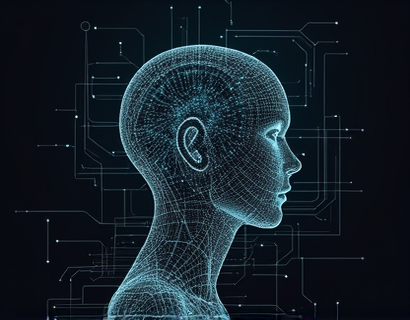Maximize Productivity with Intelligent AI Task Management
In the fast-paced world of today, maximizing productivity is not just a goal but a necessity for both personal and professional success. The integration of advanced AI agents into task management systems represents a revolutionary step forward, offering a solution that intelligently streamlines personal and business tasks. This technology allows individuals and organizations to focus on high-priority activities, thereby achieving enhanced efficiency and redefining what productivity means in the modern era.
The core idea behind intelligent AI task management is to create a seamless integration of technology into daily routines. These AI agents are designed to understand, predict, and manage tasks based on user preferences, historical data, and real-time inputs. By automating routine and repetitive tasks, they free up valuable time and mental energy, enabling users to concentrate on strategic and creative work that truly adds value.
Understanding AI Task Management
AI task management systems leverage machine learning algorithms to learn from user behavior and preferences. Over time, these systems become more accurate in predicting task priorities and deadlines, adjusting to changes in work patterns, and even suggesting optimal times for task execution. This level of customization ensures that the AI agent acts as a personal assistant, tailored to the unique needs of each user.
One of the key advantages of AI task management is its ability to handle complex task dependencies. Traditional task management tools often struggle with tasks that have multiple interrelated steps or dependencies. AI agents, however, can map out these dependencies and optimize the order of task execution to ensure smooth workflow and minimal delays. This capability is particularly beneficial in project management, where coordinating multiple tasks and team members is crucial.
Enhancing Personal Productivity
For individuals, intelligent AI task management can transform how daily tasks are handled. Imagine starting your day with a personalized task list that not only includes your immediate to-dos but also anticipates tasks based on your past behavior and upcoming events. This proactive approach ensures that you are always prepared and never caught off guard by unexpected responsibilities.
AI agents can also integrate with calendars, email, and other productivity tools to create a unified task management system. This integration eliminates the need to switch between multiple applications, reducing context switching and increasing focus. Moreover, AI can prioritize tasks based on urgency and importance, ensuring that critical activities receive immediate attention.
Another significant benefit is the reduction of decision fatigue. By automating the prioritization and scheduling of tasks, AI agents help users avoid the mental strain of constantly deciding what to do next. This allows for better mental health and sustained productivity over longer periods.
Boosting Professional Efficiency
In a professional setting, the impact of AI task management is equally transformative. Teams can collaborate more effectively as AI agents facilitate task assignment, progress tracking, and status updates. This streamlined communication reduces misunderstandings and ensures that everyone is aligned with project goals and timelines.
For managers, AI agents provide valuable insights into team performance and workload distribution. By analyzing task completion rates, idle times, and resource utilization, AI can identify bottlenecks and suggest optimizations. This data-driven approach enables managers to make informed decisions, allocate resources more efficiently, and enhance overall team productivity.
AI task management also supports remote work and hybrid environments, which have become increasingly common. With cloud-based solutions, team members can access and manage tasks from anywhere, ensuring continuity and flexibility. This is particularly beneficial in today’s global workforce, where team members may be spread across different time zones and locations.
Integration and Customization
The true power of intelligent AI task management lies in its ability to integrate seamlessly with existing workflows and tools. Whether it's CRM systems, project management software, or custom applications, AI agents can connect and synchronize data, creating a cohesive and efficient ecosystem. This integration ensures that all relevant information is accessible in one place, reducing the need for manual data entry and minimizing errors.
Customization is another critical feature. Users can tailor the AI agent to fit their specific needs and preferences. This includes setting custom rules, defining task categories, and configuring notifications. The more personalized the AI agent, the more effective it becomes in managing tasks and enhancing productivity.
Case Studies and Real-World Applications
Several organizations have already experienced the benefits of intelligent AI task management. A mid-sized software development company implemented an AI-powered task management system to streamline their development and project management processes. The result was a 30% increase in project completion speed and a significant reduction in missed deadlines. The AI agent not only managed tasks but also provided real-time insights that helped the team identify and address issues proactively.
A marketing agency used AI task management to optimize their campaign planning and execution. By automating routine tasks such as scheduling social media posts and tracking engagement metrics, the team could focus on creative strategy and client communication. This led to a 25% increase in campaign effectiveness and higher client satisfaction rates.
These case studies demonstrate the versatility and impact of AI task management across different industries and sizes of organizations. The common thread is the ability to enhance productivity, improve efficiency, and achieve better outcomes.
Challenges and Considerations
While the benefits are clear, there are also challenges and considerations to keep in mind when adopting intelligent AI task management. One of the primary concerns is data privacy and security. AI agents require access to sensitive information, and ensuring that this data is protected is paramount. Organizations must choose reputable providers that adhere to strict data protection standards and implement robust security measures.
Another consideration is the learning curve associated with new technology. Users need time to adapt to AI-driven task management systems, and initial resistance may arise. Providing comprehensive training and support can help mitigate this issue, ensuring a smooth transition and maximizing the adoption rate.
It's also important to maintain human oversight. While AI agents can handle many tasks, they should complement rather than replace human judgment. Users should remain in control, able to override AI suggestions when necessary and provide feedback to improve the system's performance.
Future Trends in AI Task Management
The future of AI task management is promising, with ongoing advancements set to further enhance its capabilities. One area of focus is the integration of natural language processing (NLP) to enable more intuitive and conversational interactions with AI agents. This will make it easier for users to communicate tasks and receive insights in a more natural and seamless way.
Another trend is the incorporation of emotional intelligence into AI agents. By understanding and responding to user emotions, AI can provide more empathetic support and adapt its suggestions based on the user's mental state. This could lead to a more personalized and supportive task management experience.
Additionally, the rise of edge computing will enable AI agents to process data locally, reducing latency and improving response times. This is particularly beneficial for real-time task management and collaboration, ensuring that users receive immediate feedback and updates.
Conclusion
Intelligent AI task management represents a significant leap forward in productivity tools, offering a blend of automation, customization, and insight that traditional methods cannot match. By intelligently managing tasks, AI agents empower individuals and organizations to focus on what truly matters, leading to enhanced efficiency and success. As this technology continues to evolve, its potential to transform how we work and live becomes increasingly evident. Embracing AI task management is not just an option but a strategic move towards a more productive and fulfilling future.











































